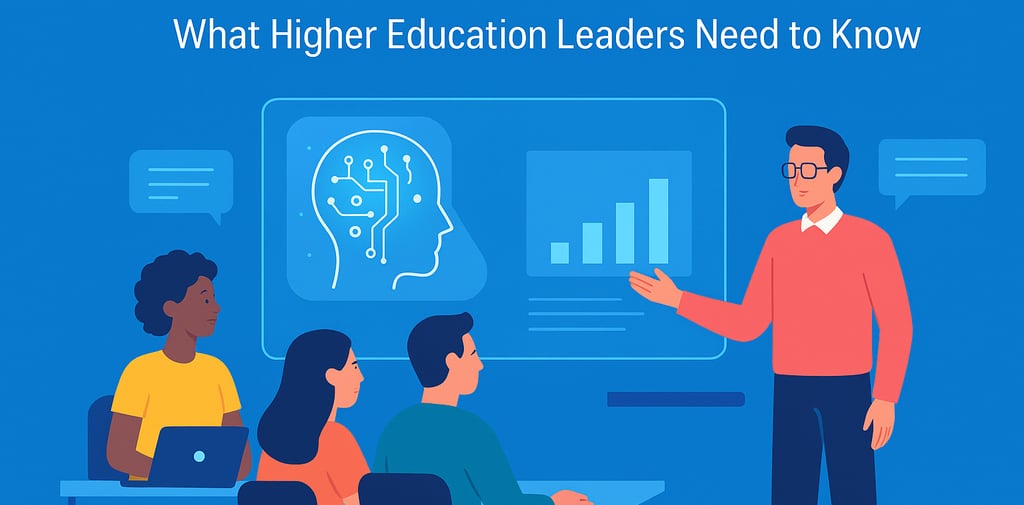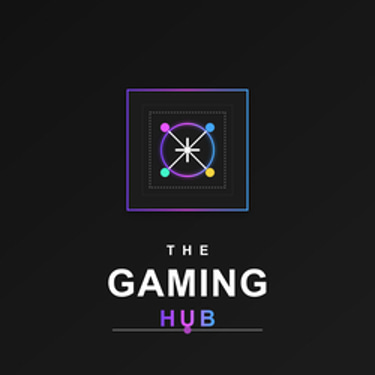How AI is Transforming Colleges: What Higher Education Leaders Need to Know
Artificial Intelligence is transforming higher education—from personalized student learning to streamlined administration. Discover how AI is helping colleges design smarter courses, improve retention, support professors, and build future-ready campuses. Learn how The Gaming Hub is driving this AI-powered revolution in universities worldwide.
AI EDUCATION
The Gaming hub
8/25/20252 min read


Artificial Intelligence (AI) is rapidly reshaping higher education. What was once considered futuristic is now a reality—AI is changing how professors teach, how students learn, and how administrators run colleges. From personalized learning pathways to streamlined academic operations, this quiet revolution is redefining the modern campus.
At The Gaming Hub, we’re helping colleges harness AI to prepare students not just for exams, but for a future where digital fluency, problem-solving, and innovation are the keys to success.
Here’s how AI is transforming colleges today—and what university leaders, deans, and administrators need to know.
Smarter Course Design with AI
Professors often spend countless hours preparing syllabi, assignments, and course materials. AI now streamlines this process so faculty can focus on teaching impact instead of paperwork.
Content mapping: AI recommends resources tailored to student skill levels.
Instant content creation: Generate quizzes, presentations, and study materials in minutes.
Adaptive learning: Course content adjusts in real time based on student performance.
Accreditation alignment: AI ensures courses align with academic and industry standards.
✅ Impact: Professors save time, stress decreases, and students experience consistent course quality.
Personalized Learning for Every College Student
In higher education, students come from diverse backgrounds, each with different strengths and gaps. AI makes it possible to personalize education at scale.
Smart adaptation: Platforms adjust lectures, assignments, and study paths instantly.
Gap detection: AI identifies weaknesses and suggests targeted resources.
Language & accessibility support: Breaking barriers for international and differently-abled students.
Instant tutoring: AI-powered assistants provide 24/7 academic support.
Self-paced progress: Students learn at their own speed—boosting confidence and reducing dropouts.
✅ Impact: Stronger academic outcomes, more engaged learners, and higher retention rates.
Administrative Relief for College Leaders
College leaders juggle student services, faculty management, compliance, and operations. AI reduces this administrative overload.
Automated reporting: Accreditation, compliance, and performance reports handled instantly.
Smart scheduling: Efficient class, exam, and faculty timetable planning.
Enrollment insights: AI predicts admission trends and manages rosters.
Data automation: Reduce manual entry and paperwork with AI-driven systems.
Well-being tracking: Monitor student engagement and detect early signs of burnout.
✅ Impact: More time for leadership, strategic growth, and student well-being.
Real-Time Insights for Smarter Campus Decisions
AI-driven analytics platforms give university leaders visibility like never before. Instead of static reports, decision-makers get live dashboards and predictive insights.
Trend visibility: See academic performance, engagement, and attendance at a glance.
Risk alerts: Identify potential dropouts or struggling students early.
Forecasting: Predict faculty hiring, classroom needs, and resource planning.
Budget clarity: AI-powered reports improve financial transparency.
Equity monitoring: Detect underserved student groups to build inclusive campuses.
✅ Impact: Evidence-based decision-making that strengthens both academic quality and financial sustainability.
Building a Future-Ready Campus Culture
AI in higher education isn’t just about tools—it’s about creating a future-ready mindset across the institution.
Faculty growth: Professors evolve into digital mentors.
Interdisciplinary learning: Blending STEM, creativity, and ethics for real-world problem solving.
AI ethics & responsibility: Equipping students to use AI responsibly.
Innovation hubs: Fostering entrepreneurship and research powered by AI.
Global edge: Attracting top students and faculty who value future-ready education.
✅ Impact: Colleges that embrace AI become innovation leaders and magnets for ambitious learners.
